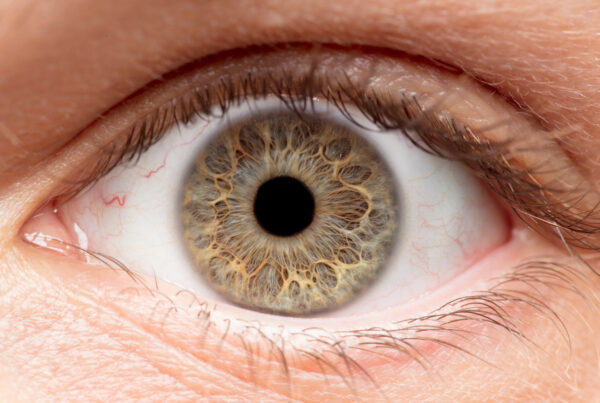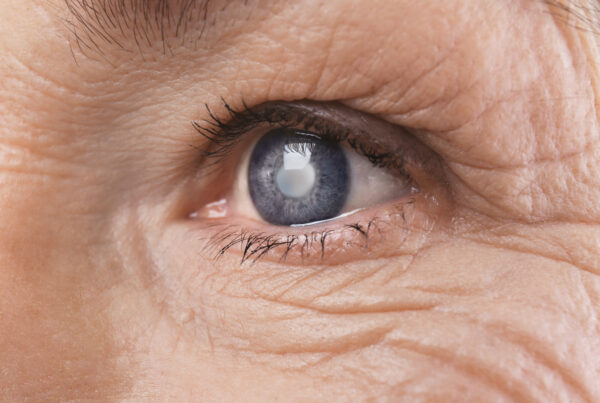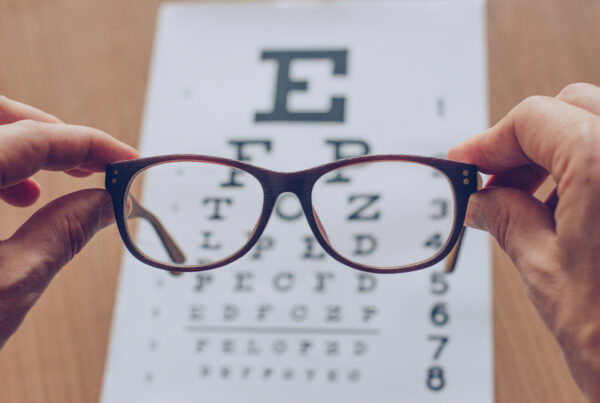
Most patients with Diabetes have been told by their doctor that they need to have regular eye exams, but many don’t understand why. As November is National Diabetes Awareness month, we wanted to take some time to talk about how Diabetes can affect your vision, why regular eye examinations are important, and what can be done to treat vision problems related to Diabetes.
How Diabetes Affects The Eyes
Diabetes can affect the vision in temporary or even permanent ways. Many diabetic patients come into our offices at SureVision Eye Centers complaining that their vision “comes and goes” with “good days and bad days”. This fluctuation in vision occurs due to rapid swings in blood sugar levels. The wider the range of your numbers the more the vision will vary. High blood glucose levels cause swelling in the natural lens inside of your eye, which leads to a change in the prescription needed in your glasses and a blurring of the vision. When the blood sugar goes back down the lens becomes less swollen and the vision usually improves again. So, the next time you have one of these “bad days” when it comes to your vision the first thing you should do is check your blood sugar level at home. The other important thing to know is that if you get new eyeglasses at a time when your blood sugars are fluctuating widely it may lead to an inaccurate prescription and poor vision with your new glasses. For that reason, we advise waiting to update your glasses until your blood sugar numbers are more stable, if possible.
Can Diabetes Cause Blindness?
While those vision changes are temporary, there are several ways that Diabetes can cause more permanent damage to your sight. These changes occur not due to daily fluctuations in blood sugar levels, but rather high average numbers over a longer period of time. This long-term poor control of diabetes causes changes to the small blood vessels in the back part of the eye, which leads to decreased blood flow and damage to the vital structures in your eye necessary for vision. Over time this can lead to other problems including weak new blood vessel growth, bleeding in the back part of the eye, macular edema (swelling of the macula – the part of the eye that controls central vision), scar tissue formation, and detachments of the retina (the portion of the eye that has all of the light-receiving cells and actually “sees” everything). In all, these various changes to the eyes and the vision loss associated with them make Diabetes one of the leading eye diseases that cause blindness in the United States!
So, if you have Diabetes you may be wondering what you can do to maintain your vision for years to come. The best treatment for Diabetic eye disease is actually prevention. We know that the longer you have Diabetes and the higher your average blood glucose levels the higher the chance that you will develop vision problems from Diabetes. So, the best thing that you can do for your vision is to maintain good control of your Diabetes by keeping your average blood glucose levels at the level recommended by your doctor. The A1c blood test that is done in your doctor’s office gives us a very good estimate of this average control over the past 3 months. For most patients, it is recommended that the A1c be below 7.0%, but this is something that you should discuss with your individual doctor. Methods to reach this goal usually include a combination of diet, exercise, and oral or injectable medications; and your endocrinologist or primary care doctor is the best to advise you on your specific treatment plan and goals. If you have already developed damage to the eyes from Diabetes there are several potential treatments including eye drops, laser procedures, and injections of medications into the eye. But these treatments may not be able to fully return the vision once damage has already been done. So again, prevention is the best treatment.
Whenever you visit one of our doctors at SureVision Eye Centers for a complete dilated eye examination we will be able to directly see if you have any of these diabetic eye changes and will be happy to discuss this with you. We will also send a letter to the doctor who manages your Diabetes to let them know of our findings. This is very important because, if these changes are occurring in your eyes, the same type of damage is likely happening throughout the rest of your body. Communicating this with your doctor will allow him or her to watch for and manage other physical complications of Diabetes and adjust treatment goals as necessary.
We hope that this answers some of your questions about Diabetes and its effects on the eyes. If you or a loved one has Diabetes and hasn’t had an eye examination within the past year, please schedule an appointment with one of our doctors at SureVision Eye Centers for a thorough evaluation.



